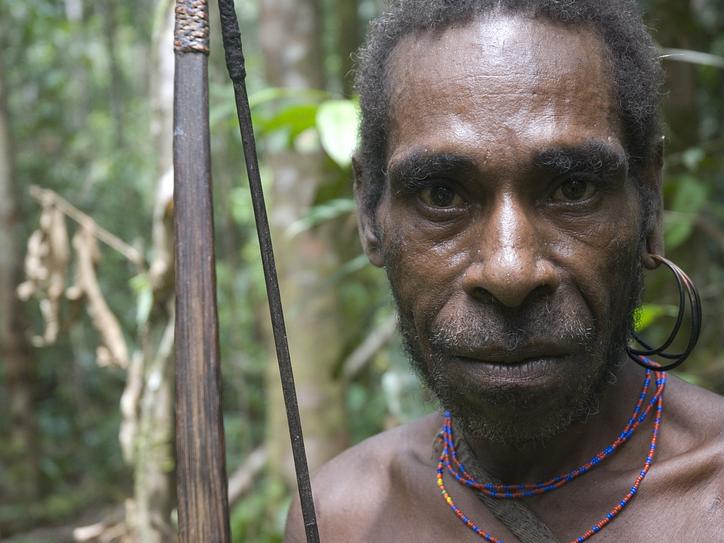West Papua is the western half of the island of New Guinea and borders the independent country of Papua New Guinea to the East. It is home to around 300 different tribes, including some uncontacted peoples. Some speak languages completely unrelated to any other in the world. All have suffered greatly under the brutal Indonesian occupation which began in 1963.
How do they live?
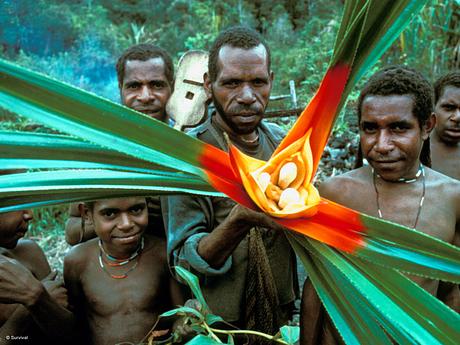 © William Milliken/Survival
© William Milliken/Survival
There are around 2.5 million Indigenous West Papuan people today. Like their Papua New Guinean relatives to the East, West Papuans are proud of their agricultural expertise and are descended from some of the world’s first gardeners. As with elsewhere in Melanesia, pigs are extremely important in West Papuan culture, and pig feasts are held to commemorate weddings, funerals and other ceremonies. Some West Papuan peoples are expert fishers and voyagers, while others hunt game and gather sago. The West Papuan people are ethnically and culturally distinct from the Indonesians who control their country.
The ‘Neglected Genocide’
Since Indonesia illegally occupied West Papua in 1963, it has embarked on a brutal and ongoing campaign of violence towards the West Papuan people, who have never accepted Indonesian rule. This has included rape, crucifixion, mutilation, aerial bombings, and alleged chemical weapons use. Experts have described such killings as part of a ‘Neglected Genocide’ and it is estimated that over 500,000 Indigenous West Papuan people have died since the Indonesian occupation began. All calls for West Papuan Independence are banned and West Papuans face up to 15 years in jail just for raising their national flag.
The Indonesian government is also seeking to “Indonesianize” West Papua’s Indigenous population, in flagrant disregard of their right to self-determination. This includes a “transmigration” program which has moved hundreds of thousands of Indonesians into the country, giving them land stolen from West Papuans. Successive governments claimed these vicious policies would ‘develop’ and integrate those whom former President Suharto termed “backward and primitive Papuans still living in the Stone Age”.
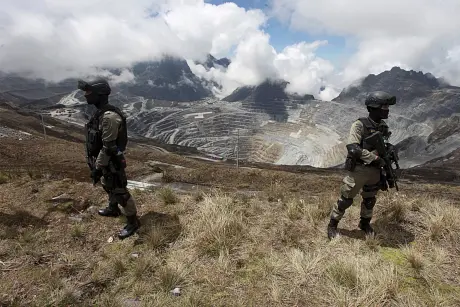 © Antara Foto via Reuters /Muhammad Adimaja
© Antara Foto via Reuters /Muhammad Adimaja
Environmental destruction
West Papua’s natural resources are also being exploited at great profit for the Indonesian government and foreign businesses, all at the expense of the West Papuan people and their homelands.
US company Freeport McMoRan operates one of the world’s largest gold mines in West Papua, which dumps over 300,000 tonnes of toxic waste into the Aikwa river every day, causing massive environmental destruction.
The world’s largest deforestation project is also taking place in West Papua, with some three million hectares (an area the size of Belgium) of forest set to be destroyed for agribusiness.
To make matters worse, notorious fossil fuel giant BP operates a massive natural gas field in West Papua, making billions of dollars for the Indonesian state while operating in the middle of a genocide.
The Indonesian military and police have close relationships with companies operating in West Papua and are often paid to protect their interests. The presence of the security forces is invariably associated with human rights violations such as killings, arbitrary arrests, rape and torture. West Papuan people who protest against the Indonesian government, the military or these projects are even more likely to experience abuses of their human rights.
Uncontacted peoples in West Papua
At the turn of the millennium, there were thought to be approximately 40 uncontacted tribes in West Papua. After decades of missionary activity and the Indonesian government’s brutal campaign of violence, it is likely this number has dramatically reduced.
Today, Survival believes there are at least two Indigenous tribes in West Papua of whom some groups are uncontacted but there are reports of other uncontacted peoples in the country. Survival estimates that there may be up to 10 Indigenous peoples or groups living without contact in West Papua’s rainforests. All are at extreme risk from any interaction with the Indonesian security forces or government officials. Adventure tourists and social media influencers are also a growing threat to West Papua’s uncontacted peoples.
Solidarity with West Papua
The brutal military assault on the West Papuan people must end and mining, agribusiness, gas extraction and other “development projects” should not be taking place on the territories of Indigenous West Papuans without their Free, Prior and Informed Consent. The territories of uncontacted peoples must be totally protected from all outside threats.
Survival is calling upon the Indonesian government to respect the West Papuan people’s human rights, as enshrined in international human rights law. These include their fundamental right to self-determination, so that they may freely choose their own fate and live on their ancestral lands in peace.
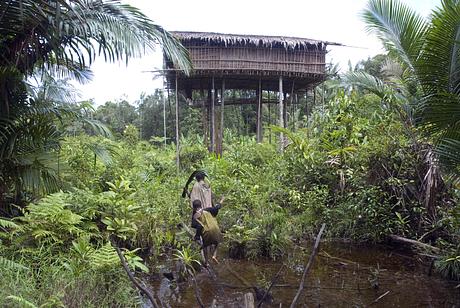 © Survival International
© Survival International
Join the mailing list
There are more than 476 million Indigenous people living in more than 90 countries around the world. To Indigenous peoples, land is life. Find out more about them and the struggles they’re facing: sign up to our mailing list for occasional updates.
News from West Papuan people
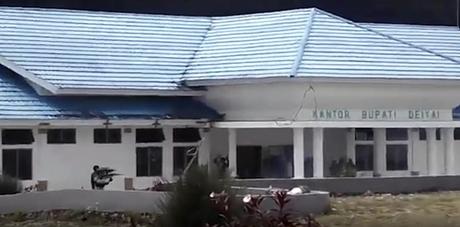
Papuans killed as anti-racist protests continue
Papuans killed during anti-racism demonstrations in West Papua. Authorities respond with military crackdown and internet and phone blackouts.
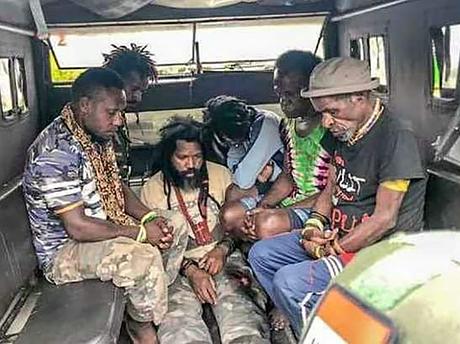
Mass arrests in Papua as UN meets
Mass arrest in West Papua as people demonstrate support for UN meeting
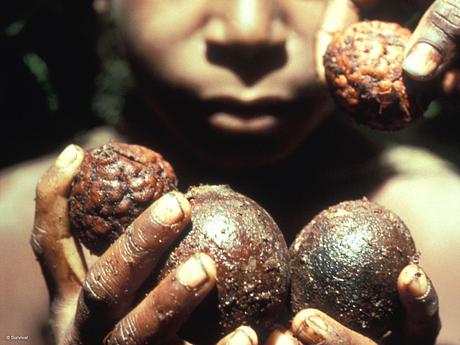
Security forces attack demonstrators in West Papua
Indonesian security forces attacked a group of a hundred tribal people who were peacefully protesting last week about delays to local elections in Nabire, West Papua.
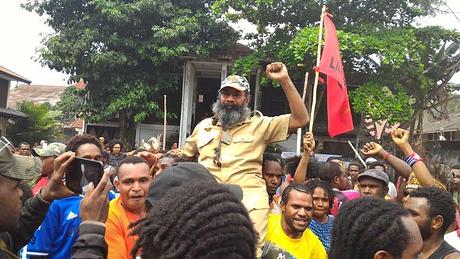
Prominent Papuan prisoner released
Prominent Papuan prisoner, Filep Karma, released. He has spent a decade in prison for raising the banned West Papuan flag.
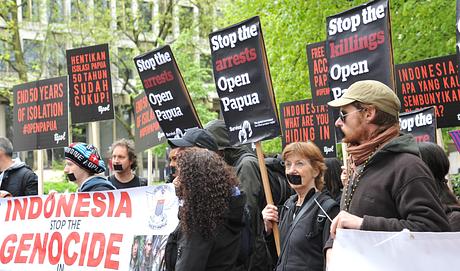
Protestors demand end to isolation of West Papua
Dozens of demonstrators gathered outside Indonesian embassies in London, Paris and other cities
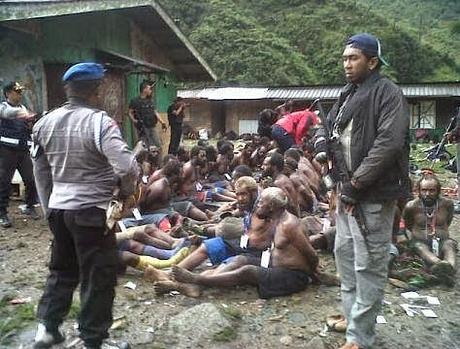
Papuans flee brutal military crackdown
Hundreds of Papuan tribal people have fled their homes following a brutal military operation in the Papuan highlands.

